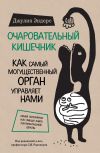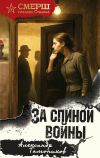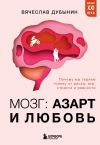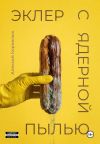Читать книгу "Собака Баскервилей / The Hound of the Baskervilles"

Автор книги: Артур Дойл
Жанр: Классические детективы, Детективы
Возрастные ограничения: 12+
сообщить о неприемлемом содержимом
Артур Конан Дойл / Arthur Conan Doyle
Собака Баскервилей / The Hound of the Baskervilles
Адаптация текста и словарь Е.В. Глушенковой
© Глушенкова Е.В., адаптация текста, словарь
© ООО «Издательство АСТ», 2019
Chapter 1
Mr. Sherlock Holmes
Mr. Sherlock Holmes, who usually got up very late in the mornings, except on those occasions when he was up all night, was sitting at the breakfast table. I stood near the fireplace and picked up the stick which our visitor had left behind him the night before. It was a fine, thick piece of wood. Under the head was a broad silver band. “To Dr. James Mortimer, from his friends of the C.C.H.,” was engraved upon it, with the date “1884.” It was just such a stick as old-fashioned family doctors carried.
“Well, Watson, what do you make of it?” Holmes was sitting with his back to me.
“How did you know what I was doing? I believe you have eyes in the back of your head.”
“I have a well-polished, silver coffee-pot in front of me,” said he. “But, tell me, Watson, what do you make of our visitor’s stick? Since we have missed him and have no idea why he came, this souvenir becomes of importance.”
“I think,” said I, following as far as I could the methods of my companion, “that Dr. Mortimer is a successful, elderly medical man, since those who know him give him this mark of their respect.”
“Good!” said Holmes. “Excellent!”
“I think also that he is probably a country doctor who does a good deal of his visiting on foot.”
“Why so?”
“Because this stick has been so worn out that I can hardly imagine a town doctor carrying it. It is evident that he has done a lot of walking with it.”
“Perfect!” said Holmes, pushing back his chair and lighting a cigarette. “I must say that in all the accounts which you have given of my investigations you have written very little about yourself. It may be that you do not have genius yourself, but you are very good at stimulating it. My dear fellow, I am very much in your debt.”
He had never said as much before, and his words gave me keen pleasure. I was proud, too, to think that I had mastered his system. He now took the stick from my hands and examined it for a few minutes, then he carried it to the window and looked over it again with a lens.
“Interesting, though elementary,” said he. “There are one or two marks on the stick, which allow us to make several deductions.
“I am afraid, my dear Watson, that most of your conclusions were wrong. When I said that you stimulated me I meant, that your mistakes guided me towards the truth. Not that you are entirely wrong in this case. The man is certainly a country doctor. And he walks a good deal.”
“Then I was right.”
“No, no, my dear Watson. A present to a doctor is more likely to come from a hospital, and when the initials ‘C.C.’ are placed before that hospital the words ‘Charing Cross’ very naturally occur to you.”
“You may be right.”
“Now, you will see that he could not be a doctor at the hospital, since only a man with a good London practice could have such a position, and such a man would not go to live in the country. What was he, then? A student. And he left five years ago—the date is on the stick. So your middle-aged family doctor turns into a young fellow under thirty, with a favourite dog, larger than a terrier and smaller than a mastiff.”
“A dog?”
“A dog has been in the habit of carrying this stick behind his master. The marks of his teeth are very well seen. These marks are too broad for a terrier and not broad enough for a mastiff. It may be—yes, it is a spaniel.”
I looked at him in surprise. He was now standing at the window.
“How can you be so sure of that?”
“For the very simple reason that I see the dog himself at our door, and there is the ring of its owner. Don’t go away, Watson. He is a professional brother of yours, and your presence may help me. What does Dr. James Mortimer, the man of science, ask of Sherlock Holmes, the specialist in crime? Come in!”
The appearance of our visitor was a surprise to me, since I had expected a typical country doctor.
He was a very tall, thin man, with a long nose like a beak, keen, gray eyes, sparkling brightly from behind a pair of glasses. Though he was young, his long back was already bowed. As he entered his eyes fell upon the stick in Holmes’s hand, and he ran towards it with an exclamation of joy. “I am so very glad,” said he. “I was not sure that I had left it here. I would not like to lose that stick.”
“A present, I see,” said Holmes.
“Yes, sir.”
“From Charing Cross Hospital?”
“From one or two friends there on the day of my marriage.”
“Your marriage, you say?”
“Yes, sir. I married, and so left the hospital. It was necessary to make a home of my own.”
“We are not so wrong, after all,” said Holmes. “And now, Dr. James Mortimer—”
“I think that it is Mr. Sherlock Holmes to whom I am speaking—”
“Yes, and this is my friend Dr. Watson.”
“Glad to meet you, sir. I have heard your name and that of your friend. You interest me very much, Mr. Holmes.”
Sherlock Holmes asked our strange visitor to take a seat.
“I came to you, Mr. Holmes, because I have a very serious and extraordinary problem. I called here last night and again today—”
“Indeed, sir! I would like to know, Dr. Mortimer, what your problem is in which you want my help.”
Chapter 2
The Curse of the Baskervilles
“I have a manuscript in my pocket,” said Dr. James Mortimer.
“The exact date is 1742.” Dr. Mortimer drew it from his pocket. “This family paper was given to me by Sir Charles Baskerville, whose sudden and tragic death three months ago was much talked about in Devonshire. I may say that I was his personal friend as well as his doctor. He was a shrewd, practical man, but he took this document very seriously, and his mind was prepared for just such a death as he met.”
Holmes took the manuscript and looked at it.
I looked over his shoulder at the yellow paper where it was written: “Baskerville Hall,” and below: “1742.”
“It is a legend of the Baskerville family.”
“But I understand that it is something more modern and practical upon which you wish to consult me?”
“Very modern. A very practical, pressing matter, which must be decided within twenty-four hours. But the manuscript is short and is connected with it. With your permission I will read it to you.”
Holmes leaned back in his chair, and closed his eyes. Dr. Mortimer turned the manuscript to the light and started reading:
“There have been many stories about the Hound of the Baskervilles. I come in a direct line from Hugo Baskerville, and I had the story from my father, who also had it from his. I have written it down with all belief that it occurred as is written here
“About a hundred years ago Baskerville Hall was owned by Hugo, a most wild, and godless man. It so happened that this Hugo fell in love (if, indeed, so dark a passion may be known under so bright a name) with the daughter of a farmer who had land near Baskerville Hall. But the young girl avoided him, for she feared this evil man. So it happened that one day this Hugo, with five or six of his idle and wicked companions, came to the farm and carried off the girl, as he knew that her father and brothers were away from home. When they had brought her to the Hall the girl was locked in a room upstairs, while Hugo and his friends sat down to a long dinner, as was their custom. Now, the poor girl upstairs was frightened by the wild singing and shouting and terrible cursing which came up to her from below, for they say that the words used by Hugo Baskerville, when he was in wine, were really terrible. And in her fear she did what could only be done by the bravest man. With the help of the ivy which covered (and still covers) the wall she came down, and ran across the moor to her father’s farm.
“It so happened that some little time later Hugo left his guests to carry food and drink to the girl, and so found the cage empty and the bird escaped. Then he rushed down the stairs into the dining-hall, sprang upon the great table, and he cried aloud before all the company that he would give up his body and soul to the Powers of Evil if he caught the girl. And while the guests stood frightened at the fury of the man, one more wicked or, it may be, more drunken than the rest, cried out that they should put the hounds upon her. At once Hugo ran from the house, crying to his grooms that they should saddle his horse. And giving the hounds a kerchief of the girl’s, he put them on the scent, and off they went over the moor.
“For some time the guests stood still, unable to understand what had been done. But soon thirteen of them took horses and followed Hugo and the hounds.
“They had gone a mile or two when they passed a man, and they cried to him to know if he had seen the girl. And the man, as the story goes, said that he had seen the unhappy girl, with the hounds on her track. ‘But I have also seen,’ said he, ‘Hugo Baskerville on his black horse, and a hound of hell ran behind him.’ The drunken squires cursed the man and rode on. But they saw Hugo’s horse soon galloping across the moor, with an empty saddle. They came at last upon the hounds. They were standing and whimpering. The moon was shining bright upon the clearing, and there lay the unhappy girl where she had fallen, dead of fear and of exhaustion. But it was neither her body, nor the body of Hugo Baskerville lying near her, which raised the hair upon the heads of the men. A great, black beast, looking like a hound, but larger than any hound in the world was standing over Hugo and biting at his throat. And as they looked the beast tore the throat out of Hugo Baskerville, as it turned its blazing eyes upon them, the men shrieked with fear and rode, still screaming, across the moor. One, it is said, died that very night of a heart attack, and the others were broken men for the rest of their days.
“Such is the story, my sons, of the hound which has plagued the family ever since. Many deaths in the family have been unhappy, sudden, bloody, and mysterious. My sons, I ask you, and I advise you not to cross the moor in those dark hours when the powers of evil are the strongest.”
When Dr. Mortimer had finished reading this unusual story he looked at Mr. Sherlock Holmes. “Well?” said he. “Do you find it interesting?”
“To a collector of fairy tales.”
Chapter 3
Sir Charles’s Death
Dr. Mortimer drew a folded newspaper out of his pocket.
“Now, Mr. Holmes, we will give you something more recent. This is the paper from Devonshire of May 14th of this year. It is a short account of the death of Sir Charles Baskerville which occurred a few days before that date.”
My friend’s expression became interested. Our visitor began:
“The recent sudden death of Sir Charles Baskerville has struck everyone in the county. Though Sir Charles had lived at Baskerville Hall for a short period, his good character and generosity had won the love and respect of all who knew him. In these days of nouveaux riches, he was a rare man of an old county family who was able to make his own fortune and to bring it back with him to restore the fallen greatness of his family. Sir Charles, as is well known, made large sums of money in South Africa, and returned to England with them. It is only two years since he came to Baskerville Hall, and we all know how large were his plans of reconstruction. He had no children, and he was generous to many people.
“The circumstances of the death of Sir Charles have not become clear at the inquest. Sir Charles was simple in his tastes, and his servants at Baskerville Hall were a married couple named Barrymore, the husband was a butler and the wife a housekeeper. Their evidence, like that of several friends, showed that Sir Charles’s health had for some time been poor, especially the heart, and he had attacks of nervous depression.
“The facts of the case are simple. Sir Charles Baskerville was in the habit of walking down the famous yew alley of Baskerville Hall every night before going to bed. On the fourth of May Sir Charles said he was starting next day for London. That night he went out as usual for his walk, where he was in the habit of smoking a cigar. He never returned. At twelve o’clock Barrymore, finding the hall door still open, became alarmed, and went to look for his master. The day had been wet, and Sir Charles’s footmarks were clearly seen in the alley. At the end of the alley there is a gate which leads out on to the moor. It was clear that Sir Charles had stood for some time there. He then went down the alley, his body was discovered at the far end of it. One thing which has not been explained is the fact that Sir Charles’s footprints changed their character from the time that he passed the moor gate to the place of his death. He seemed to have been walking upon his toes. No signs of violence were discovered on Sir Charles’s body, and though the doctor said his face was so distorted that Dr. Mortimer at first could not believe that it was his friend and patient who lay before him—it was explained that it was a symptom of heart exhaustion. There was a post-mortem examination, which showed long disease. It is understood that the heir is Mr. Henry Baskerville, if he is still alive, the son of Sir Charles Baskerville’s younger brother. The young man, when he was last heard of, was in America.”
Dr. Mortimer put his paper in his pocket. “Those are the public facts, Mr. Holmes, of the death of Sir Charles Baskerville.”
“I must thank you,” said Sherlock Holmes, “for telling me about a case which certainly may be of interest. This article, you say, contains all the public facts?”
“It does.”
“Have you any other facts?”
“I am telling something I have not told anyone,” said Dr. Mortimer. “My motive is that a man of science does not want to be associated with superstition. I had another motive that no one would want to live at Baskerville Hall, if anything increased its already rather bad reputation. That was why I said less than I knew.
“Very few people live on the moor, and those who live here know each other very well, so I saw a good deal of Sir Charles Baskerville. With the exception of Mr. Frankland, of Lafter Hall, and Mr. Stapleton, the naturalist, there are no other men of education within many miles. Sir Charles’s illness brought us together as well as our interests in science. He had brought back much scientific information from South Africa, and we have spent together many nice evenings discussing scientific problems.
“In the last few months it became clear to me that Sir Charles’s nervous system was near the breaking point. He had taken this legend close to heart—so much that nothing would make him go out on the moor at night. He was sure that his family was cursed. He asked me many times whether I had ever seen any strange beast or heard the barking of a hound on my medical journeys at night. He was sure there was a dreadful hound on the moor.
“I can well remember visiting him in his house in the evening some three weeks before his death. He was at the front door. I was standing in front of him, when I saw him looking over my shoulder with an expression of the most dreadful horror. I turned round and had just time to see something which I took for a large black calf passing the alley. So excited and alarmed was he that I had to go down to where the animal had been and look around for it. It was gone, but Sir Charles was very much alarmed. I stayed with him all the evening, and he gave me the manuscript, which I read to you.
“It was at my advice that Sir Charles decided to go to London. His heart was, I knew, weak, and the constant fear in which he lived, was evidently very bad for his health. I thought that a few months in town would do him a lot of good. Mr. Stapleton, our friend, was of the same opinion. And at the last moment this tragic death came.
“On the night of Sir Charles’s death Barrymore the butler sent Perkins the groom for me, and I was able to reach Baskerville Hall an hour after the death. I followed the footsteps down the yew alley, I saw the place at the moor gate where he evidently had waited, I remarked the change in the shape of the footsteps. I saw that there were no other footsteps except those of Barrymore, and I carefully examined the body, which had not been touched until my arrival. Sir Charles lay on his face, his arms out, his fingers dug into the ground. I turned him over and saw that his face was so convulsed that I could hardly recognize my friend. There was no physical injury of any kind. Barrymore said at the inquest that there were no footprints on the ground round the body. He did not see any. But I did—some little distance off, but fresh and clear.”
“Footprints?”
“Footprints.”
“A man’s or a woman’s?”
Dr. Mortimer looked strangely at us for a moment, and said in a whisper:
“Mr. Holmes, they were the footprints of a gigantic hound!”
Chapter 4
The Problem
I saw that Holmes was really interested.
“You saw this?”
“As clearly as I see you.”
“Why did not anyone else see it?”
“The footsteps were some distance away from the body. I should not have noticed them myself if I had not known this legend.”
“But they had not approached the body?”
“No.”
“What kind of night was it?”
“Damp but not raining.”
“Is there any other gate that leads on to the moor?”
“None.”
“Now, tell me, Dr. Mortimer—and this is important—was the gate closed?”
“Closed and locked.”
“How high was it?”
“About four feet high.”
“Then anyone could get over it?”
“Yes.”
“And what marks did you see by the gate?”
“Nothing interesting.”
“Good heaven! Did no one examine?”
“Yes, I examined, myself.”
“And found nothing?”
“Sir Charles had evidently stood there for five or ten minutes.”
“How do you know that?”
“Because the ash had twice dropped from his cigar.”
“Excellent! But the marks?”
“He had left his own marks all over that small place. I could see no others.”
“If I had only been there!” he cried. “It is evidently a case of extraordinary interest. Oh, Dr. Mortimer, why did you not call me in!”
“I could not call you in, Mr. Holmes, without telling everyone about these facts, and I have explained why I did not wish to do so. Besides—”
“Yes?”
“There are things in which the best of detectives is helpless.”
“You mean that the thing is supernatural?”
“I did not say so.”
“No, but you evidently think it.”
“Since the tragedy, Mr. Holmes, I have heard some strange stories.”
“For example?”
“Before the terrible event occurred several people had seen a creature on the moor which looked like the Baskerville demon. They all said that it was huge and luminous, like a dreadful apparition of the legend. There is a feeling of terror in the district, and hardly anyone crosses the moor at night.”
“And you, a man of science, believe it to be supernatural?”
“I do not know what to believe.”
Holmes shrugged his shoulders.
“But, Dr. Mortimer, if you think that the hound is supernatural, why have you come to consult with me? You tell me that it is useless to investigate Sir Charles’s death, and that you want me to do it.”
“I did not say that I wanted you to do it.”
“Then, how can I help you?”
“By advising me what to do with Sir Henry Baskerville, who arrives at Waterloo Station today.”
“Is he the heir?”
“Yes. After the death of Sir Charles we looked for this young gentleman and found that he had been farming in Canada.”
“There is no other heir, I believe?”
“None. The only other relative whom we have been able to find was Rodger Baskerville, the youngest of three brothers of whom poor Sir Charles was the eldest. The second brother, who died young, is the father of Henry. The third, Rodger, was the black sheep of the family. He looked very much like the family picture of old Hugo, they tell me. He left England for Central America, and died there in 1876. Henry is the last of the Baskervilles. In one hour and five minutes I am meeting him at Waterloo Station. Now, Mr. Holmes, what would you advise me to do with him?”
“Why should he not go to the home of his fathers?”
“It seems natural, does it not? And yet, every Baskerville who goes there meets with his death. That is why I ask for your advice. What would you recommend?”
Holmes thought for a little time.
“I recommend, sir, that you will say nothing to him at all until I have made up my mind about the matter.”
“How long will it take you to make up your mind?”
“Twenty-four hours. At ten o’clock tomorrow, Dr. Mortimer, call on me here, and bring Sir Henry Baskerville with you.”
“I will do so, Mr. Holmes.”
“Good morning.”
Holmes returned to his seat with that quiet look of satisfaction which meant that he had an interesting task before him.
“Going out, Watson?”
“Yes.”
I knew that solitude was very necessary for my friend in the hours of mental concentration during which he solved difficult problems. I therefore spent the day at my club and did not return to Baker Street until evening. It was nearly nine o’clock when I came into the sitting-room.
“After you left I sent for a map of this portion of the moor,” said Holmes.
He pointed to a map which he held on his knee. “That is Baskerville Hall in the middle. I believe this must be the yew alley, with the moor on the right of it. This small group of buildings here is the village of Grimpen. Within a radius of five miles there are, as you see, only a few houses. There is a house here which may be the home of the naturalist—Stapleton. Here are two farms. Then fourteen miles away is the prison of Princetown. Around these buildings extends the lifeless moor.”
“It must be a wild place.”
“Yes, there are two questions waiting for us. The first is whether any crime has been committed at all; the second is, what the crime is and how it was committed. What do you make of it?”
“I don’t know what to make of it.”
“That change in the footprints, for example. What do you make of that?”
“Mortimer said that the man had walked on tiptoe down that portion of the alley.”
“Why should a man walk on tiptoe down the alley? He was running, Watson—running for his life, running until he burst his heart—and fell dead.”
“Running from what?”
“There lies our problem. I presume that the man was crazy with fear before he began to run.”
“How can you say that?”
“I presume that the cause of his fears came to him across the moor. Only a man crazy with fear would have run from the house and not towards it. Then, whom was he waiting for that night, and why was he waiting for him in the yew alley rather than in his own house?”
“You think that he was waiting for someone?”
“The man was elderly and in poor health. The night was damp. Is it natural for him to stand for five or ten minutes? He avoided the moor. That night he waited there. It was the night before he left for London. Now, we will think over this business when we meet Dr. Mortimer and Sir Henry Baskerville in the morning.”









































